Part 116: Kuzka's Mother
Chapter 11 — Kuzka’s Mother — April 1943 to December 1944From the earliest days of the World War, the Supreme Leader of the Iberian Union had poured considerable resources and manpower into a series of highly-classified, immensely-expensive endeavours in an effort to seize the upper hand in the conflict against Francia, Morocco and Russia.

And these ambitious projects certainly yielded results, birthing advancements in rocketry and jet technology that were quickly translated onto the battlefield in the form of jet-powered aircraft and ballistic missiles.


It went far beyond that, however. At the heart of these highly-exclusive projects was Operation Hakam, an experimental programme known only to the Supreme Leader and his personal cabinet. Borne from the determination to overcome the industrial and manpower superiority held by their enemies, this programme sought to harness the power of a false sun, ending the war in a single terrible stroke…
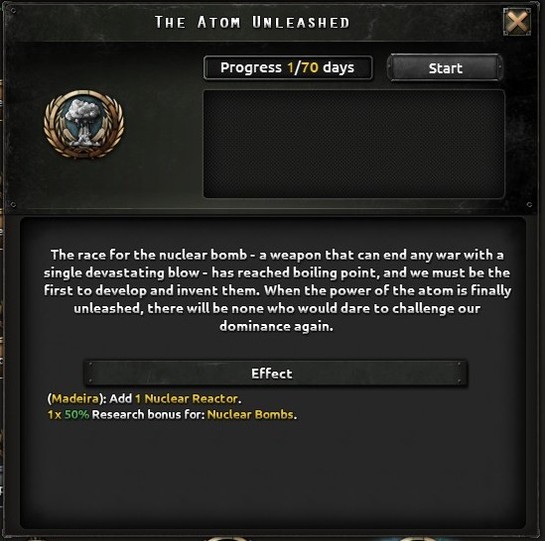
They were chasing the atomic bomb, with prominent Portuguese physicist Mario Pato leading a massive team composed of Andalusi and Castilian scientists, Provencal and German refugees, even Moroccan and Frankish defectors. After years of ambitious designs and meticulous research, funding for the construction of nuclear reactors was finally granted in the summer of 1943, allowing them to begin testing the power of the atom.
And within a year, though they never would’ve guessed it then, a nuclear weapon would be detonated for the first time in human history.

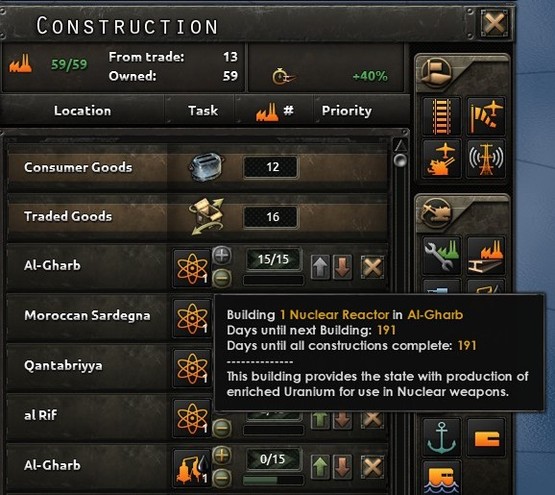
All of this remained top-secret, of course. Iberian high command were certain that they were leading the race for the bomb, but it would be months and years before any could be deployed against the enemy, months and years in which the war could still be won or lost.

On the Frankish front, the Iberian offensive towards Paris was brought to a screeching halt by an influx of enemy reinforcements, but they were able to continue their advance into Britain and Germany over the course of May and June.


In Eastern Europe, the Russians began redeploying hundreds of thousands of troops to the Balkan peninsula, where they were bogged down by brutal battles in Greece and Serbia.
This would quickly prove to be a foolish decision, however, because this redeployment weakened their northern front significantly, allowing the Franks to launch a devastating counter-attack and capture Smolensk again, this time setting the entire city afire.

Further east, the war situation got messier as the Bengal Raj launched an invasion into China, forcing the Manchu Presidency to split their forces on two fronts and surrender ground to the Red Turbans.

South from there, the Cedi invasion of Indochina was met with surprising success, with Cedi troops catching the Franks off-guard and quickly swarming across the peninsula.

That allowed the Sultanate of Usturaliya, the last holdout of the Almoravid dynasty, to shift their attentions to other fronts. Usturaliya was a powerful player in its own right, possessing the largest and strongest navy in East Asia, along with a sizeable army and passable industry.
Their navy allowed them to seize the sealanes spanning the Bay of Bengal, followed by a series of naval landings along the eastern coast of India, with tens of thousands making landfall in the dying days of August.

The war in the east certainly wasn’t over, with the same said for the war in the west, where New England and Berber Union were battling between the barren deserts and jagged sierras of Ibriz. The old enemies were evenly-matched so far, with the Berbers gaining some ground in August and July before being brought to a standstill at the Pánuco River.
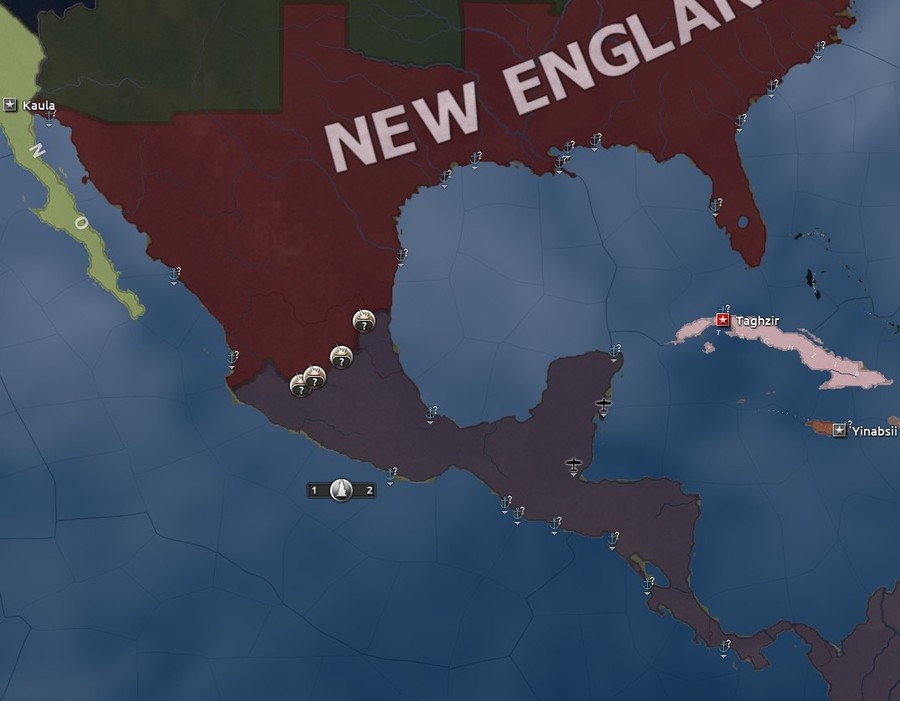
Back in Europe, meanwhile, the Iberians were quickly making headway in the battle of Britain. Frankish troops attempted to contain them in Cornwall, but a series of armoured offensives forced them on the retreat, with Bristol and Portsmouth and Birmingham falling to the Iberians in quick succession.
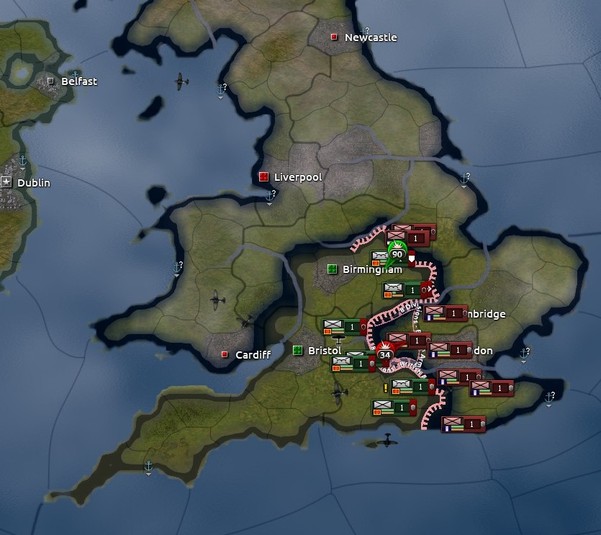
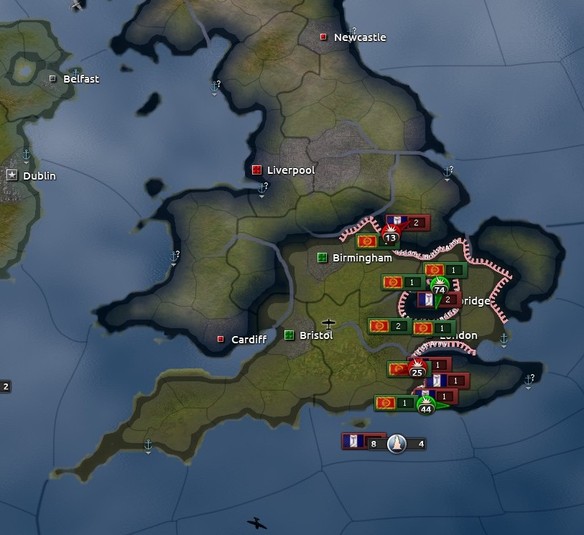
And in the sunrise hours of the 2nd of September, the administrative and economic capital of Britain surrendered to the Iberians, with the Frankish garrison retreating from London and evacuating across the Channel.
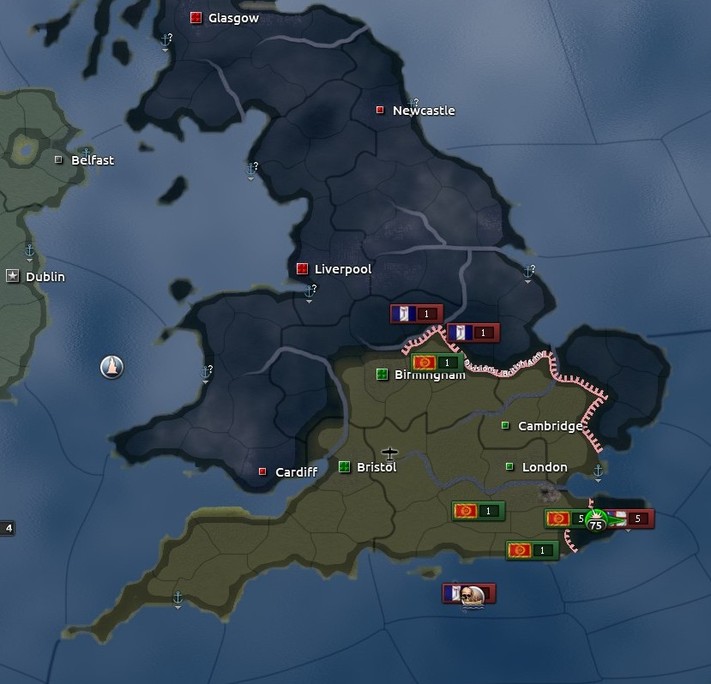
The march on Paris continued to frustrate the Iberian high command, however, with the Franks fighting tooth and nail for every village and town and city.
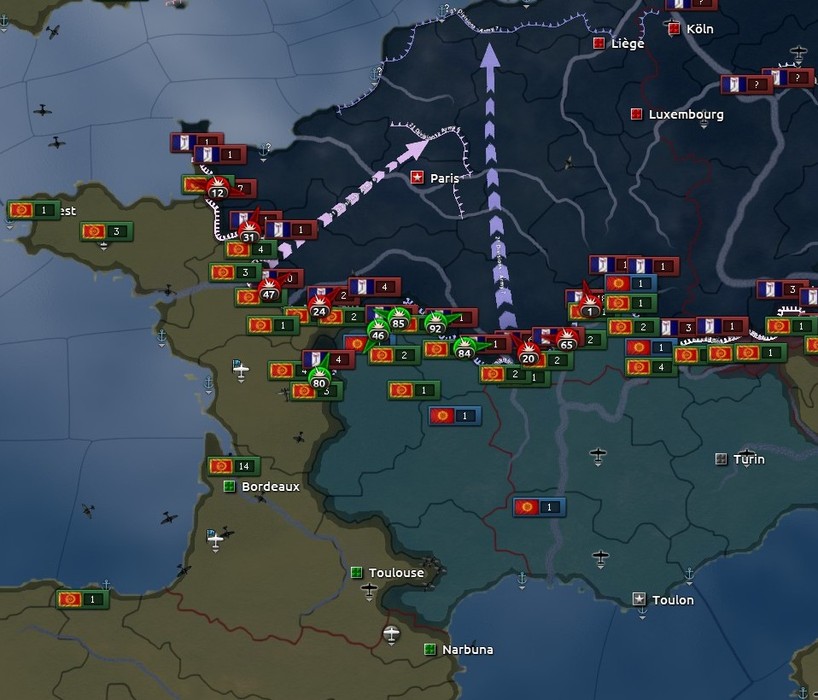
The Iberians managed to pocket and annihilate a few divisions here and there, but it wasn’t enough to crack their lines.
With every passing day, it became increasingly clear that the Franks would defend Paris with every last man, woman and child if necessary, but that also provided opportunity for the Iberians. The most decorated marshal of the Red Army, Mahmud ibn Bibil, began drawing up an ambitious encirclement of the entire Frankish army by enveloping their capital from every side, starting with a series of renewed offensives into Germany.
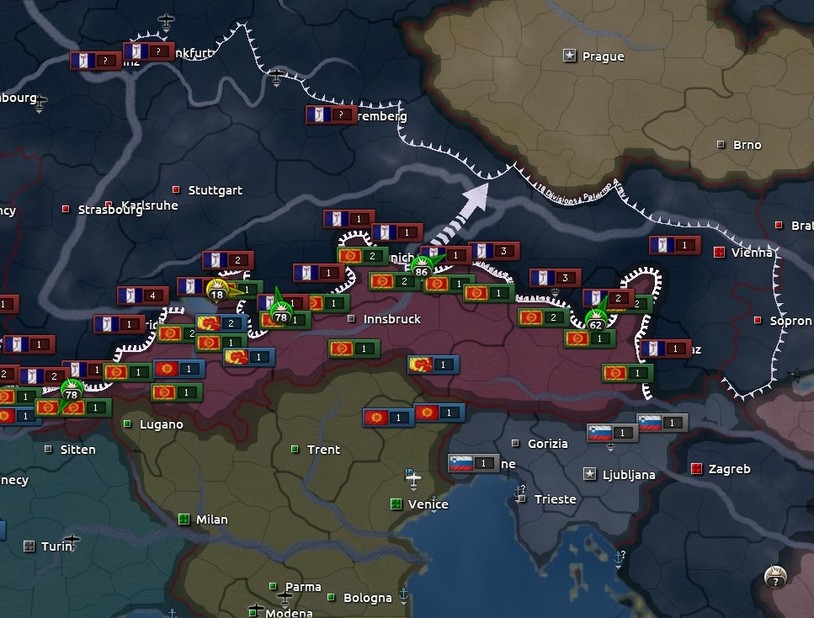
And this was met with immediate success, since the Franks were forced to redeploy troops to repel a simultaneous offensive towards Paris, allowing the Iberians to break through their weakened lines and flood into Southern Germany, besieging and taking Zurich, Stuttgart, Nuremberg, Munich and Vienna over the course of autumn.
The enemy were on the back foot, so Mahmud ibn Bibil ordered another incursion in October of 1943, this time pushing towards Frankfurt — the capital of Socialist Germany, occupied by fascists for over four years now.
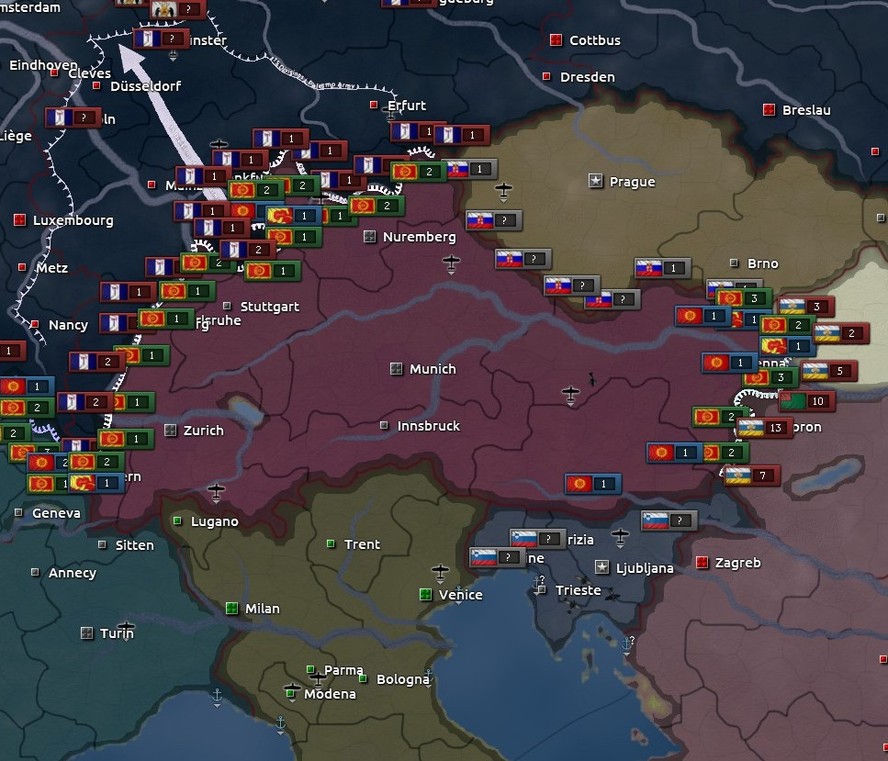
Most crucially, the Iberians also managed to seize large parts of the Vienna Corridor before smashing into 40 fully-manned and well-equipped Russian divisions, an entire army. And as it turns out, the Russian president also dispatched 20 divisions to the Suez Canal, determined to stave off any Iberian crossings into Asia.
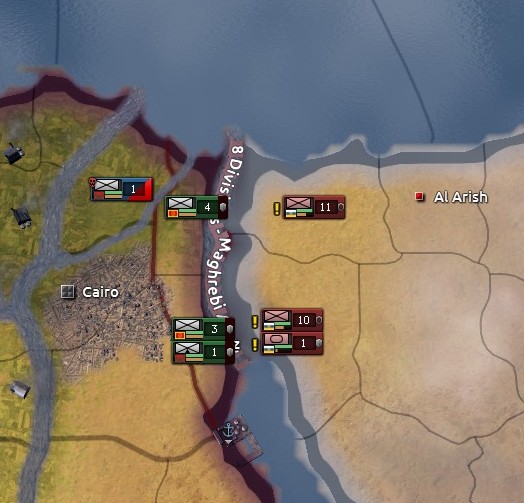
They weren’t actually attacking the Iberians, however. Perhaps hoping to reach an unspoken truce with Qadis, the Russian president seems to have adopted an unassertive stance against Iberian troops, focusing his entire strength on the Frankish Realm instead.
And the Supreme Leader was happy to reciprocate, redeploying his troops against Paris whilst the Russians brought the bloody fighting in the Balkans to a close and desperately counter-attacked towards Smolensk.
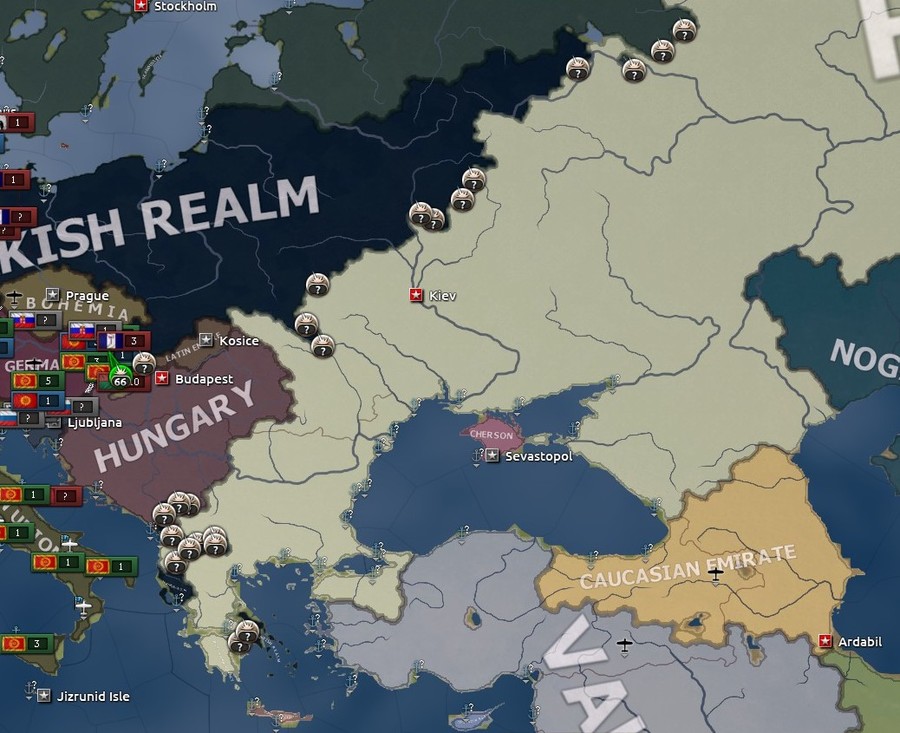
The ceaseless clashes continued throughout the rest of the year, and it wasn’t until the new year that some good news finally arrived. January of 1940 saw the first of the synthetic refiners complete construction, allowing for the renewed production of tanks and warplanes after a lengthy drought.
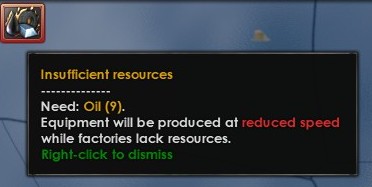
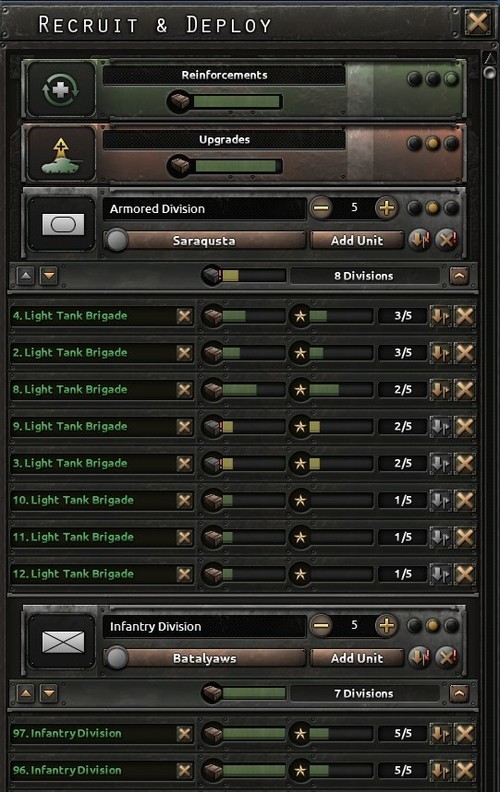
These reinforcements took to the field in February and March, rushing to the frontlines in France and Germany, where Mahmud ibn Bibil quickly put them to good use in diversionary attacks all down the frontline. The marshal then concentrated his assault divisions and overwhelmed enemy positions with sheer numbers, piercing Frankish lines and finally reaching the outskirts of Paris…
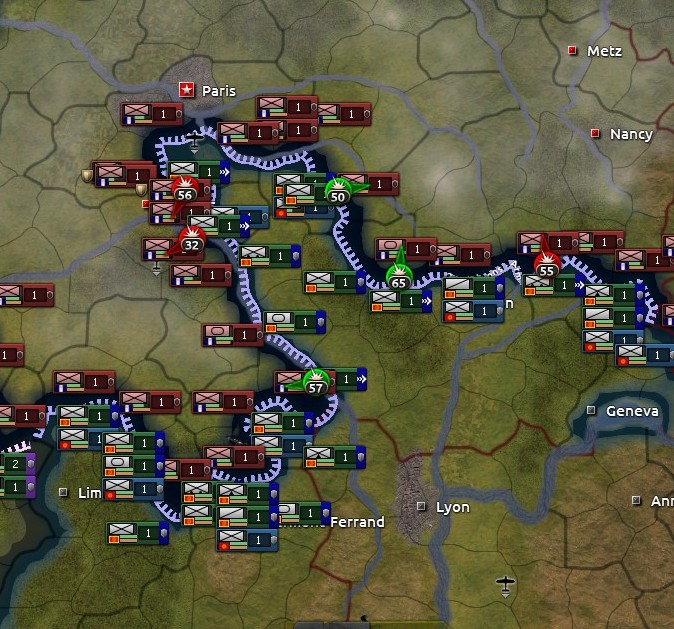
Once again, however, the Iberian advance was halted. They had overreached, and without the numbers to cross the Seine, they were repelled with heavy casualties.
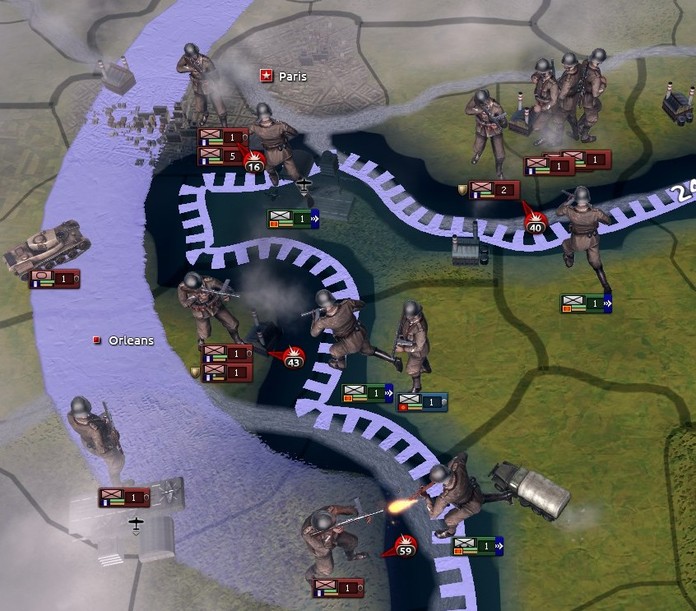
To the north, the Iberians were bringing the battle of Britain to a close, crushing a few isolated divisions and flooding into Wales and Scotland with ease.
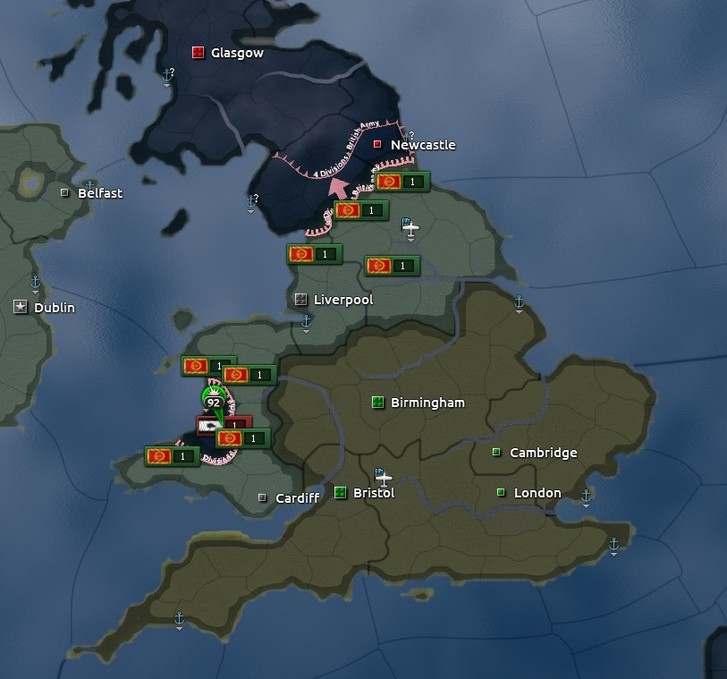
And to the east, after a series of determined forays and relentless bombardment, the Iberians were able to seize Frankfurt and its environs. The German government-in-exile immediately relocated back to their old capital, and despite the ruins and wreckages that littered the city, their entry was met by cheering crowds and red flags everywhere.
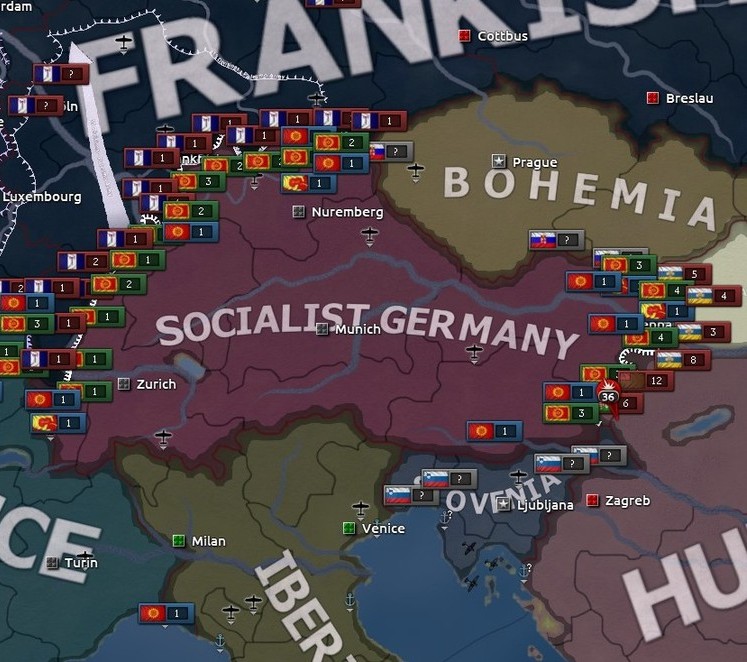
The attack on Paris may have been beaten back, but with the Red Army gradually advancing on the Frankish capital from every direction, the Iberian plan was slowly coming into fruition.
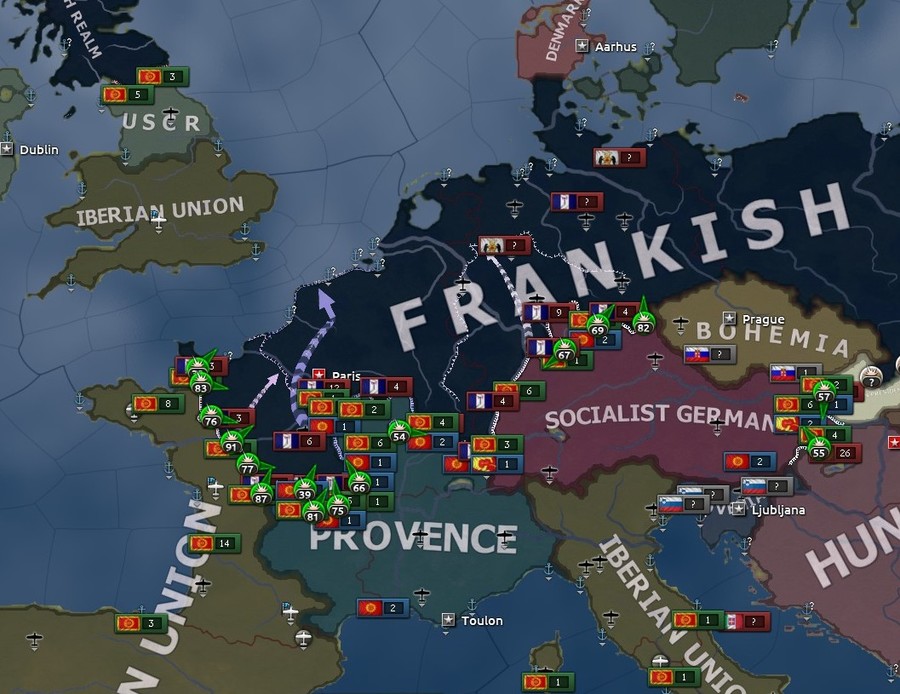
In the far east, a coordinated effort between Mongols and Manchurians repelled the Bengali invasion, quickly followed by another successful operation that forced the Red Turbans to retreat. By March of 1944, the Manchurian army would be advancing into India and Korea alike.
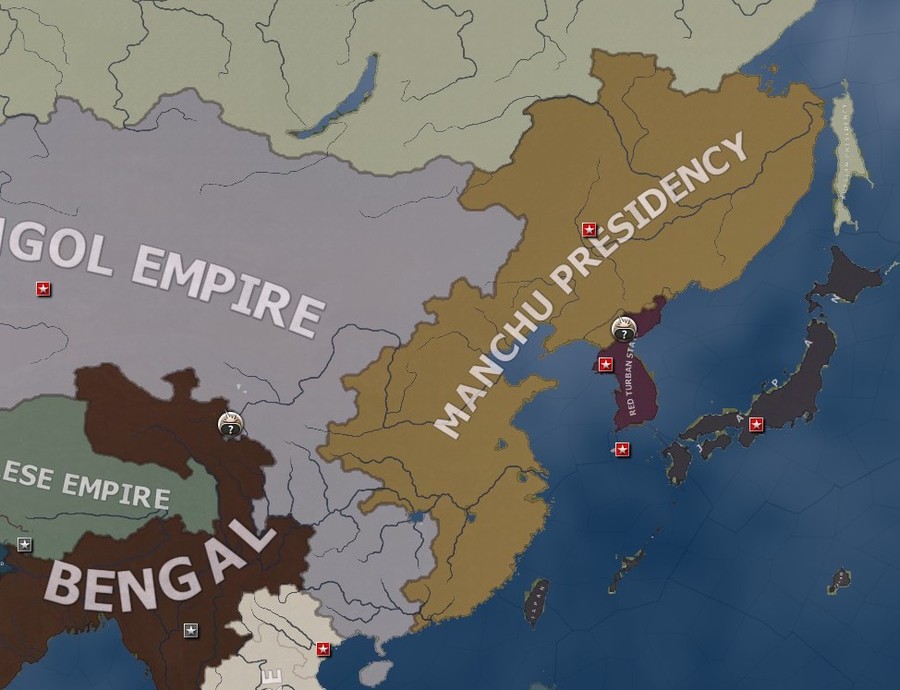
This had poor bearings for the Bengal Raj, which had managed to contain the Usturaliyi invasion and very nearly crushed it altogether.
The turn of events in China meant that they had to redeploy troops against Mongolia and Manchuria, however, and that allowed the Almoravids to reinforce their garrison in Madras, breathing new life into the invasion as large parts of southern India fell to them.
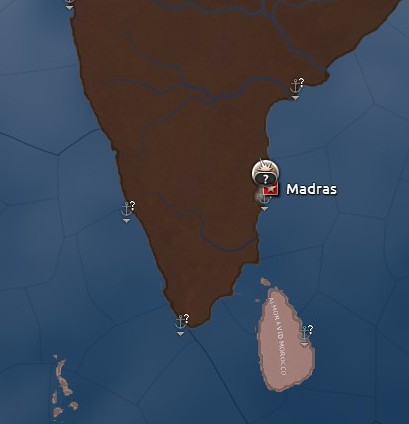
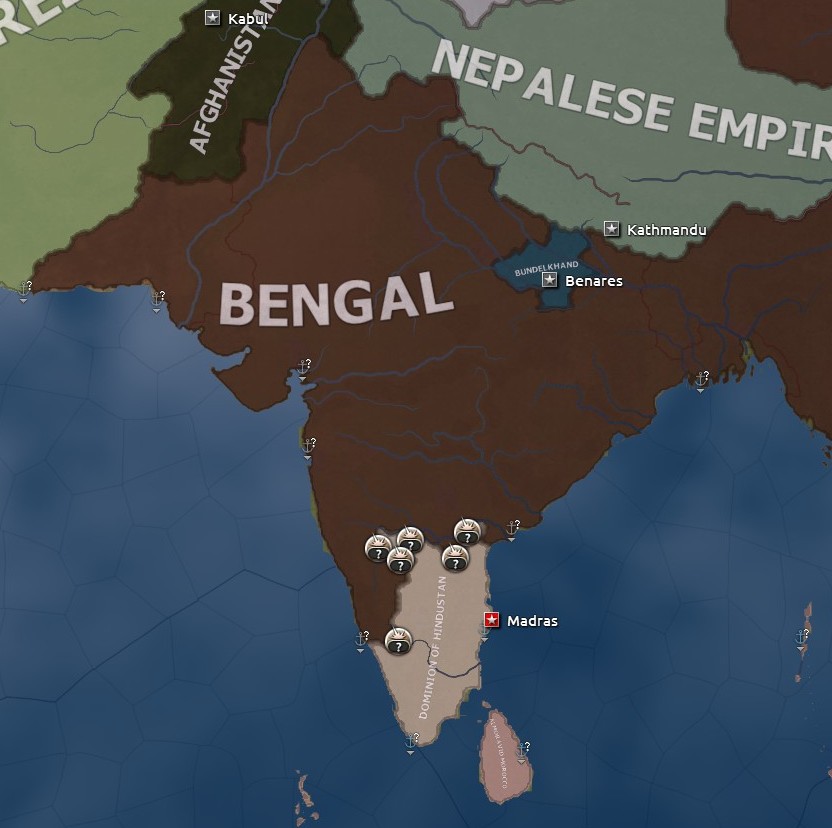
The Frankish colony in Indochina was also on its last legs, and having already lost the support of the populace, the cities and towns dotting the peninsula welcomed the Cedi as their liberators from colonialism, with Hue and Bangkok surrendering in April, followed by Saigon in May and Singora in June.
By the end of the summer months, they would be shelling the colonial capital in Singapore, bringing an explosive end to fascism in Asia.
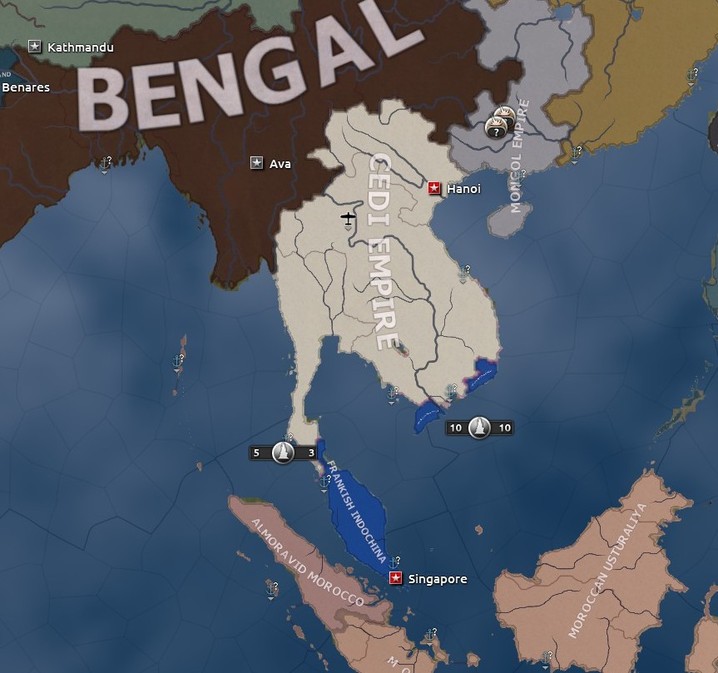
Across the width of the Pacific Ocean, little had changed over the past year, with any gains made by either side quickly lost, and any losses quickly recovered.
And in that short time, hundreds of thousands have already lost their lives, with the general public in New England and Berber Union quickly turning against war. Unless the Three Viziers and Prime Minister managed to negotiate an end to their war, the prospect of revolution was becoming increasingly likely.
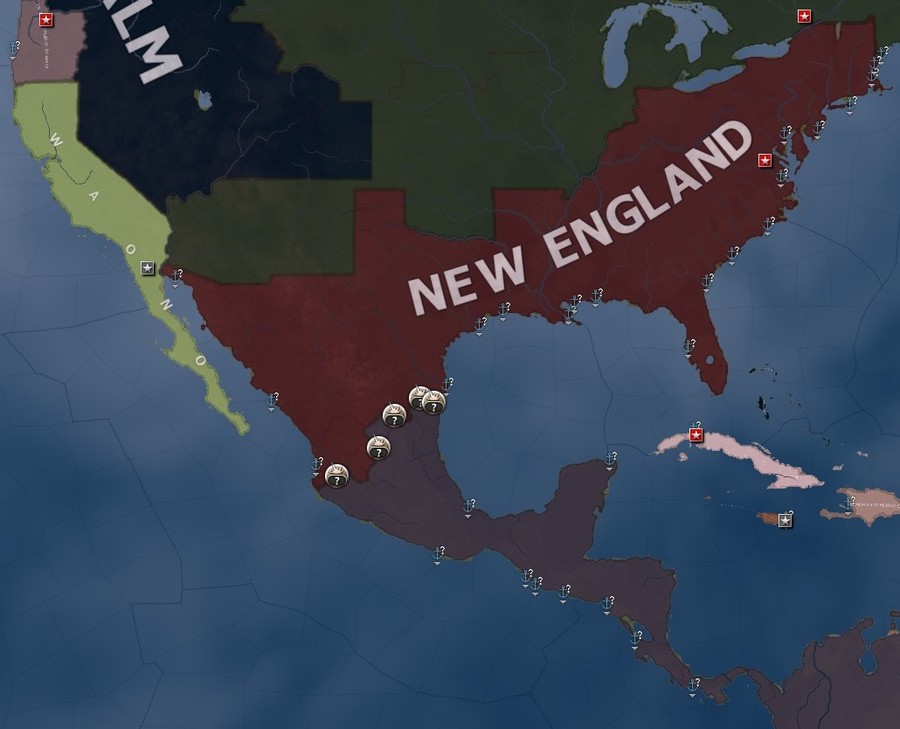
On the home front, meanwhile, the Russians finally managed to retake their capital after a string of bloody battles stretching across Belarus and the Baltic. And with the Balkan peninsula under harsh occupation, the president began deploying his armies westward, with the Russians flooding into Poland and Germany in August of 1943.
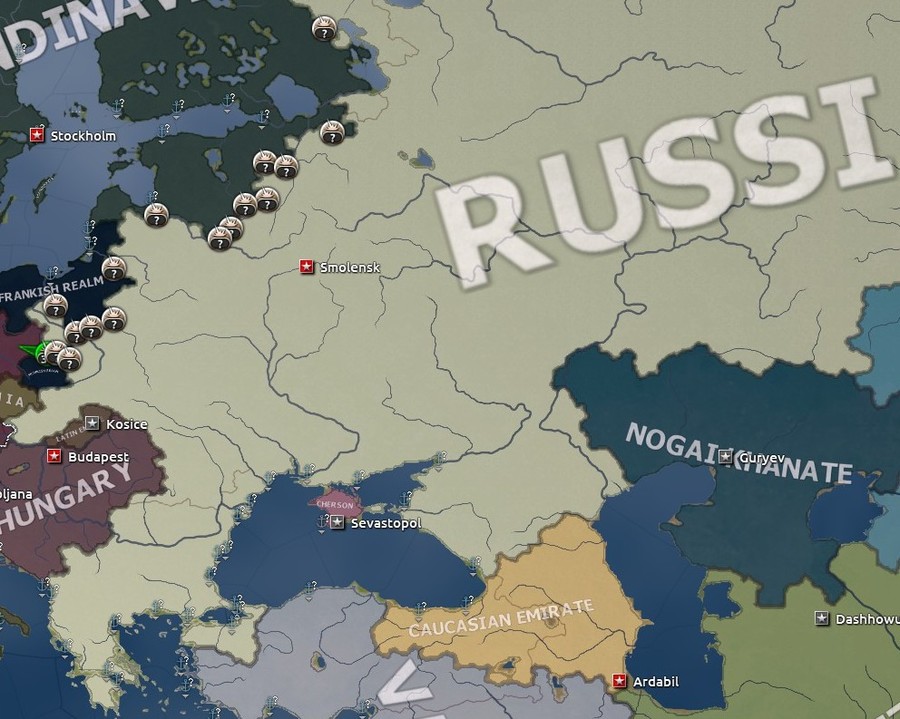
The Russian advance was accompanied by concurrent Iberian offensives in the west, where a stunning assault spearheaded by newly-constructed medium tanks managed to surround 35 Frankish divisions at Limousin and Dunkirk. Almost half a million soldiers that became corpses and prisoners in the dying days of August, when the last of them surrendered their guns and fell to their knees.
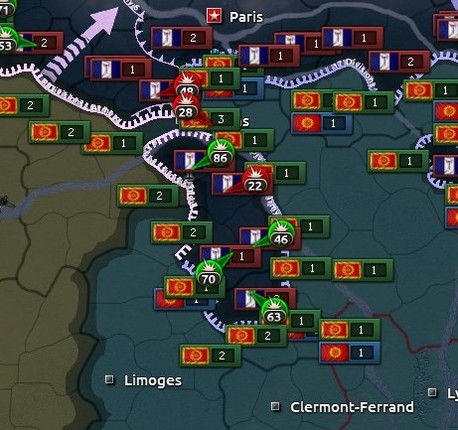
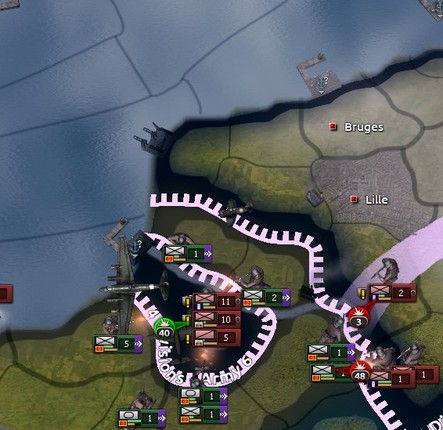
Mahmud ibn Bibil didn’t rest on his laurels, however. Those encirclements left massive holes in Frankish lines, and the marshal immediately sent his tanks into those holes, forcing them wider as the infantry quickly followed.
And on the 30th of September, the Iberians reached the outskirts of Paris for the second time, and this time in force.
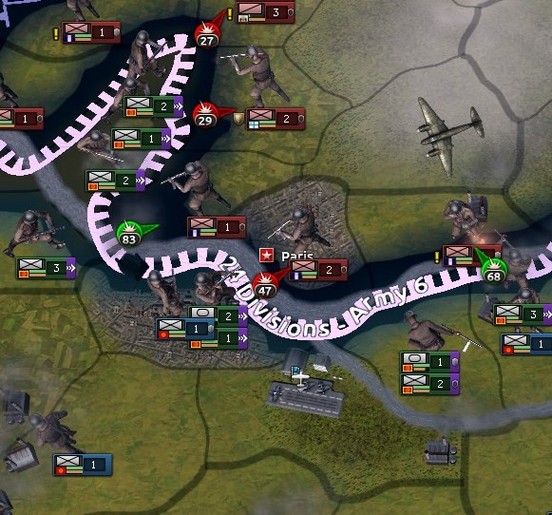
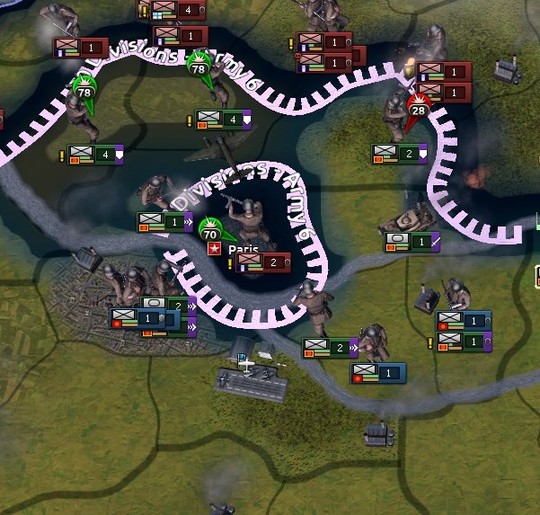
The capital of the Frankish Realm was quickly surrounded, and whilst fending off desperate attacks from every direction, the Iberians began closing on Paris.
A storm of fighters wrested control over the skies, artillery corps relentlessly shelled large parts of the city, infantry divisions flooded into the suburbs, and Paris gradually crumbled. On the 13th of October, after almost a fortnight of futile holdouts and desperate skirmishes and bloody massacres, the garrison finally surrendered, and an Iberian flag was raised above the Eiffel Tower.
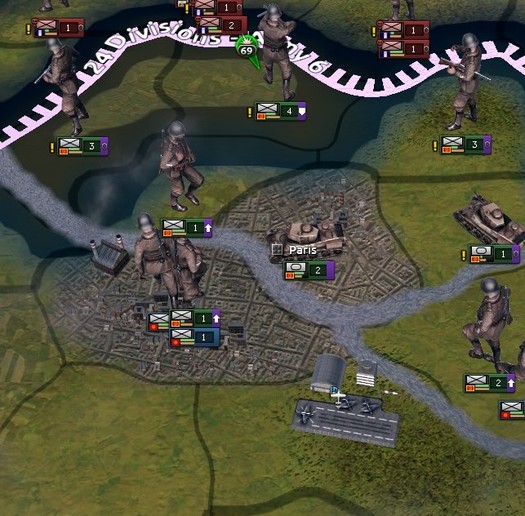
Supreme Leader Mizanur immediately demanded an unconditional surrender, but unbeknownst to him, Jacques Vernier had been in the city throughout the fighting. The Commandant of the Frankish Realm had apparently been caught afoot by the sudden encirclement of Paris, but he attempted to slip through the blockade on the 17th of October, only to be apprehended by a group of local communist partisans.
They were fighting under Iberian flags, but they were Frenchmen alright. Many had lost family and friends to the fascist regime, and with the orchestrator of that regime meekly begging for mercy before them, they quickly took justice into their own hands…
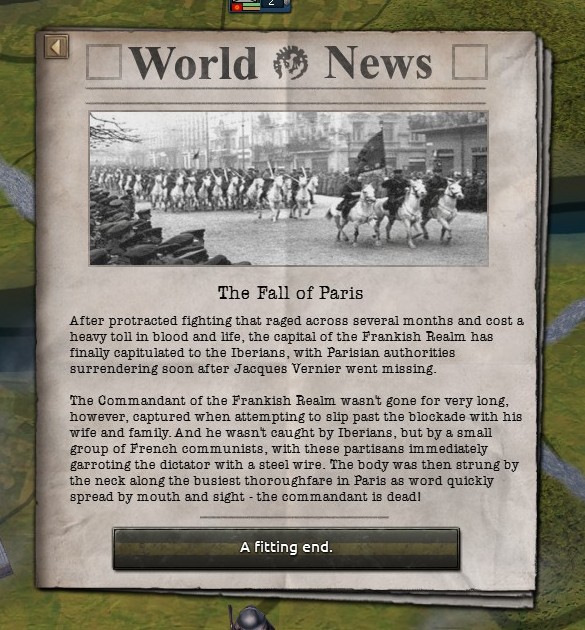
Jacques Vernier would be found on the busiest thoroughfare of Paris later that day, strung by steel wire from the neck, his family and guard alongside him.
Photographs and headlines began blaring the news before very long, and as word of the garrotting of the commandant spread, the last of Frankish resistance disintegrated with it. Paris had fallen, l’Commandant was dead, and the Frankish Realm was at an end.
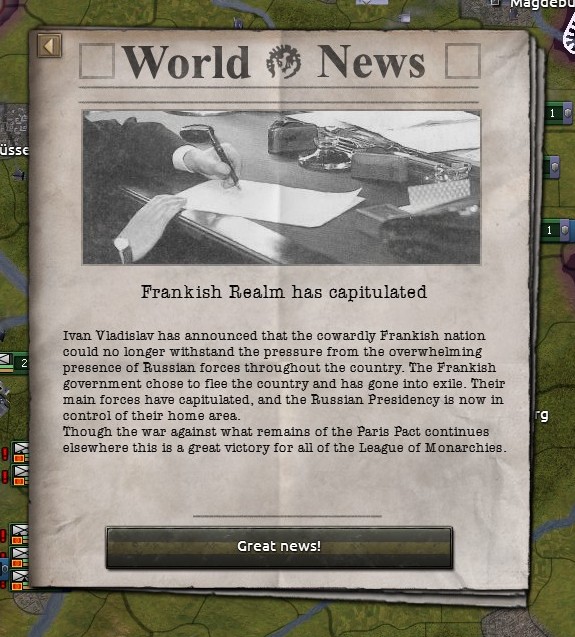
Rebellions began erupting throughout Holland and Germany, but even when they succeeded in overthrowing fascist rule, they were promptly crushed by the advancing Iberian and Russian armies as they strove to seize as much land as possible.
And in November of 1944, just as winter snows became hailstorms, they met in the middle of Germany.
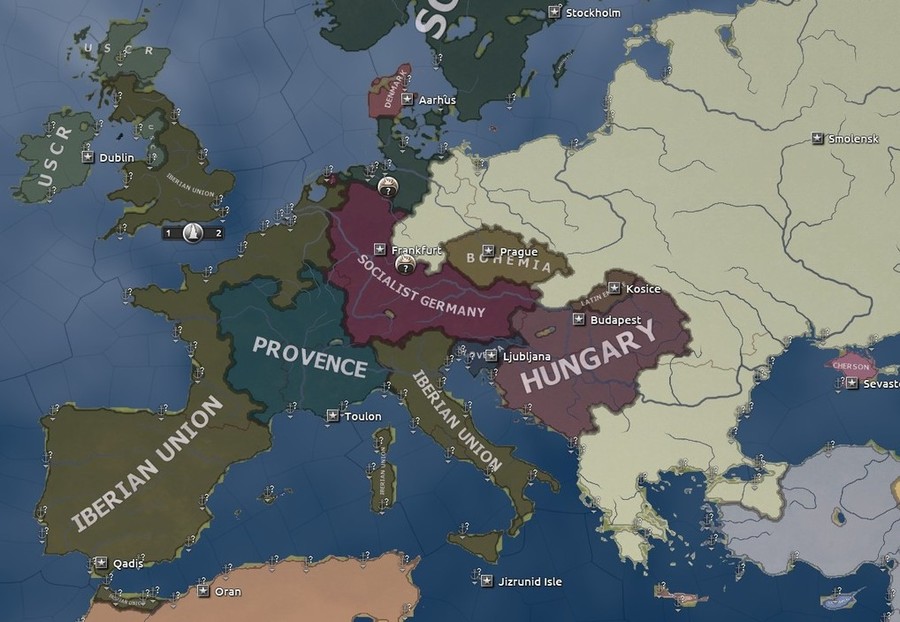
For a few days, neither side attacked and an uneasy calm settled along the line, with the Russians even attempting to open negotiations with Qadis. This calm became untenable when they made their demands known, however, because they wanted everything they had — East Germany, the Balkans, Anatolia, Syria, Iraq, Arabia — as well as joint control over the Vienna Corridor and Suez Canal.
The offer wasn’t immediately refused, however. Supreme Leader Mizanur was biding his time, waiting for a report from Mario Pato, a report that could change everything… And it arrived in the dying days of November, when the nuclear physicist confirmed that the first atomic bomb had finally started construction, a mere 90 days away from being deployed.
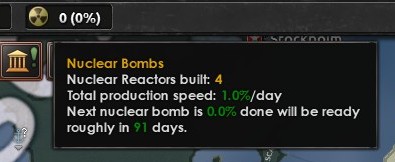
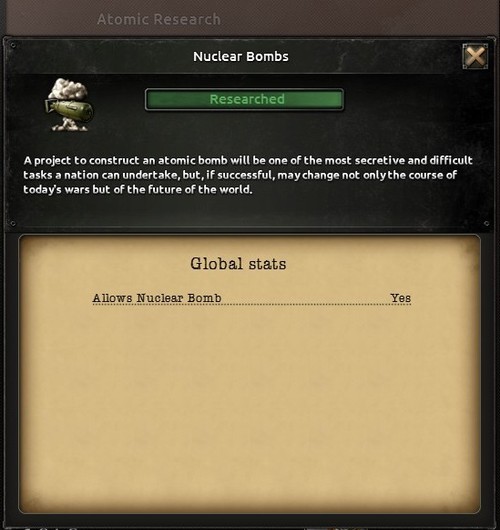
And with that, the Supreme Leader didn’t waste another thought in refusing the Russians. He turned to the Socialist Shura for a mandate, and his supporters in the assembly immediately reinforced his position by announcing the formation of a new communist union in the Near East — the Socialist Federation of the Mashriq.
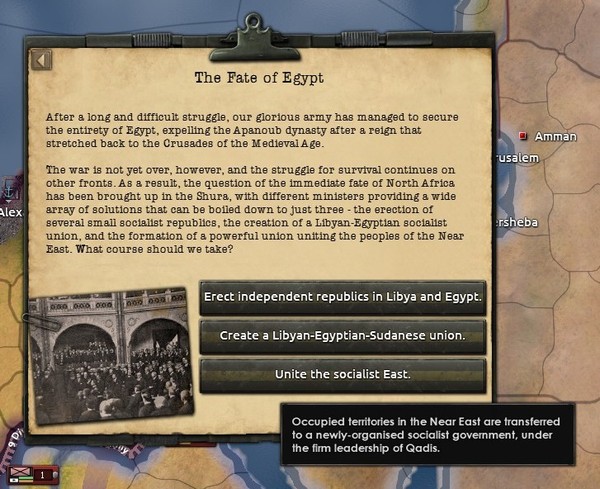
As its name implied, this federation laid claim to the entirety of the Near East, from Cilicia to Aden, and these claims were made public in a fiery speech delivered by its first supreme leader (another Iberian puppet, needless to say).
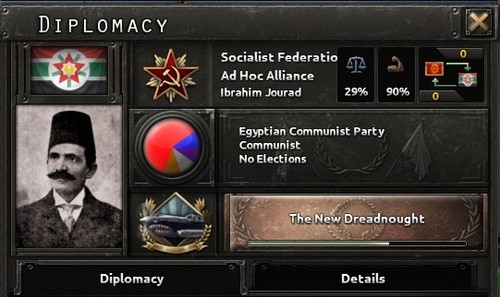
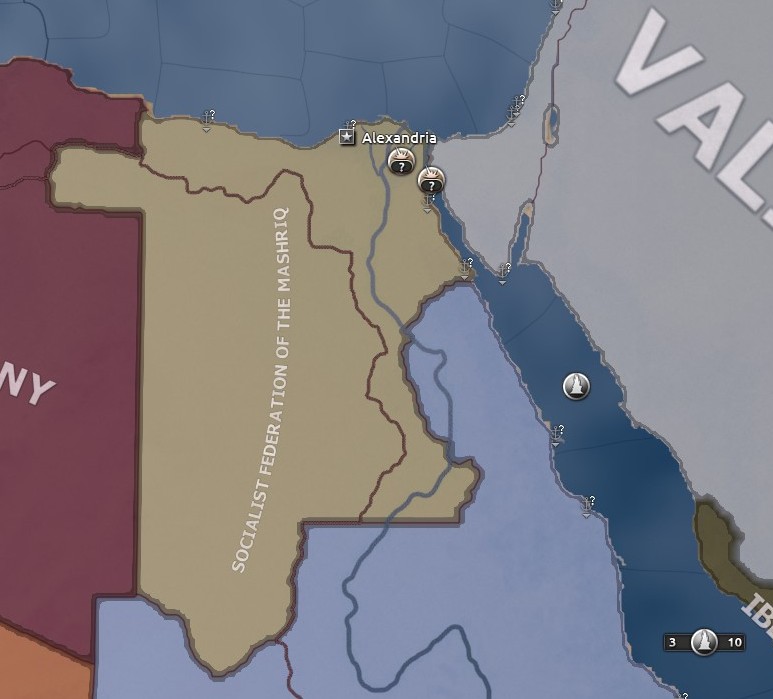
Acting on the Supreme Leader’s orders, this was quickly followed by a string of assaults across the Suez Canal, bringing the month-long ceasefire to a bloody end.
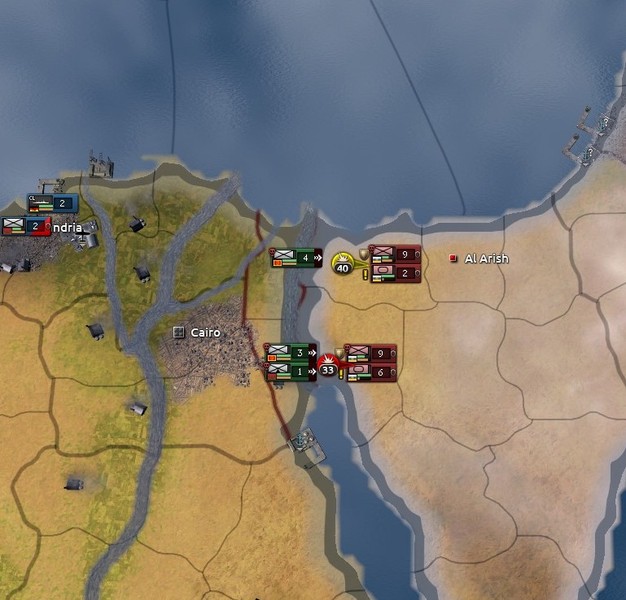
The Russian president immediately denounced the Iberian leadership, calling a press conference in which he vowed to punish their hubris with unbridled fire, but the Red Army was already on the march.
The next few weeks saw the Iberians and Russians clash from Hamburg to Budapest, and with his trump card nearing completion, Supreme Leader Mizanur urged his marshals to aggressively advance regardless of casualties. This war would be over within weeks, he was certain.
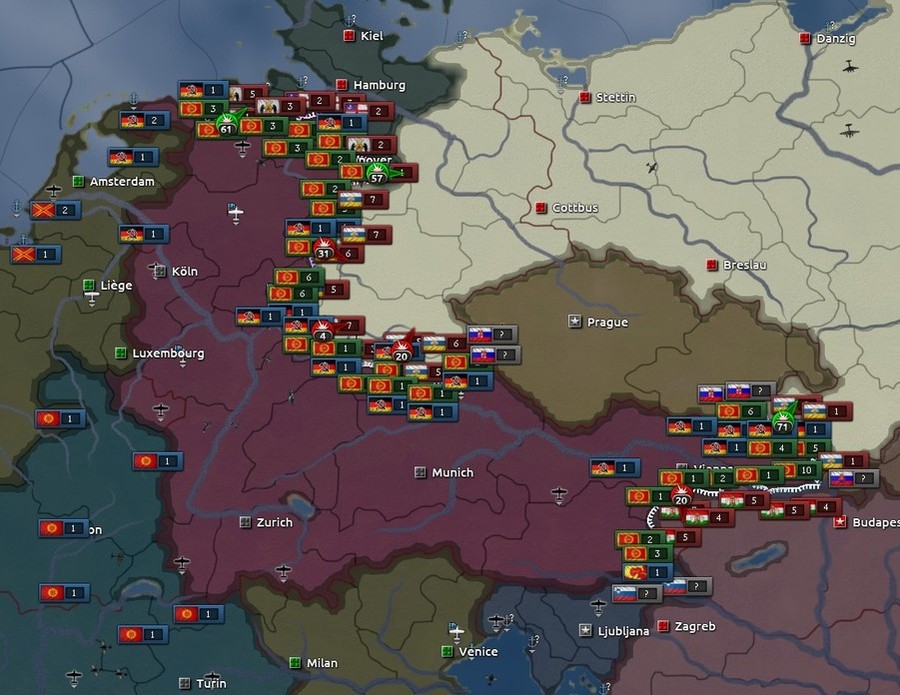
Unfortunately for him, however, the Russians had a trump card of their own.
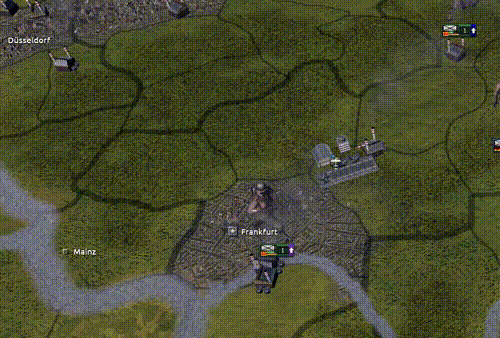
And it happened to be the atomic bomb.